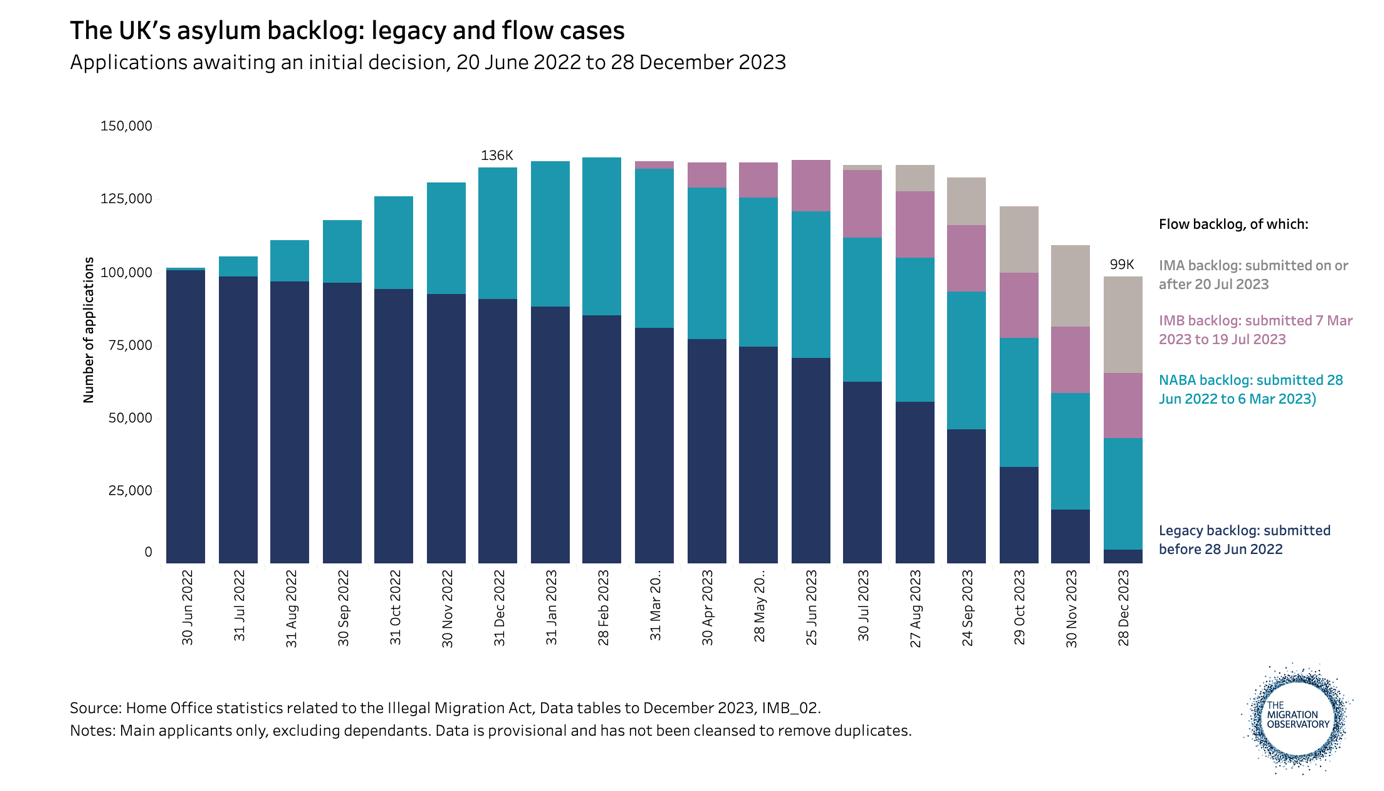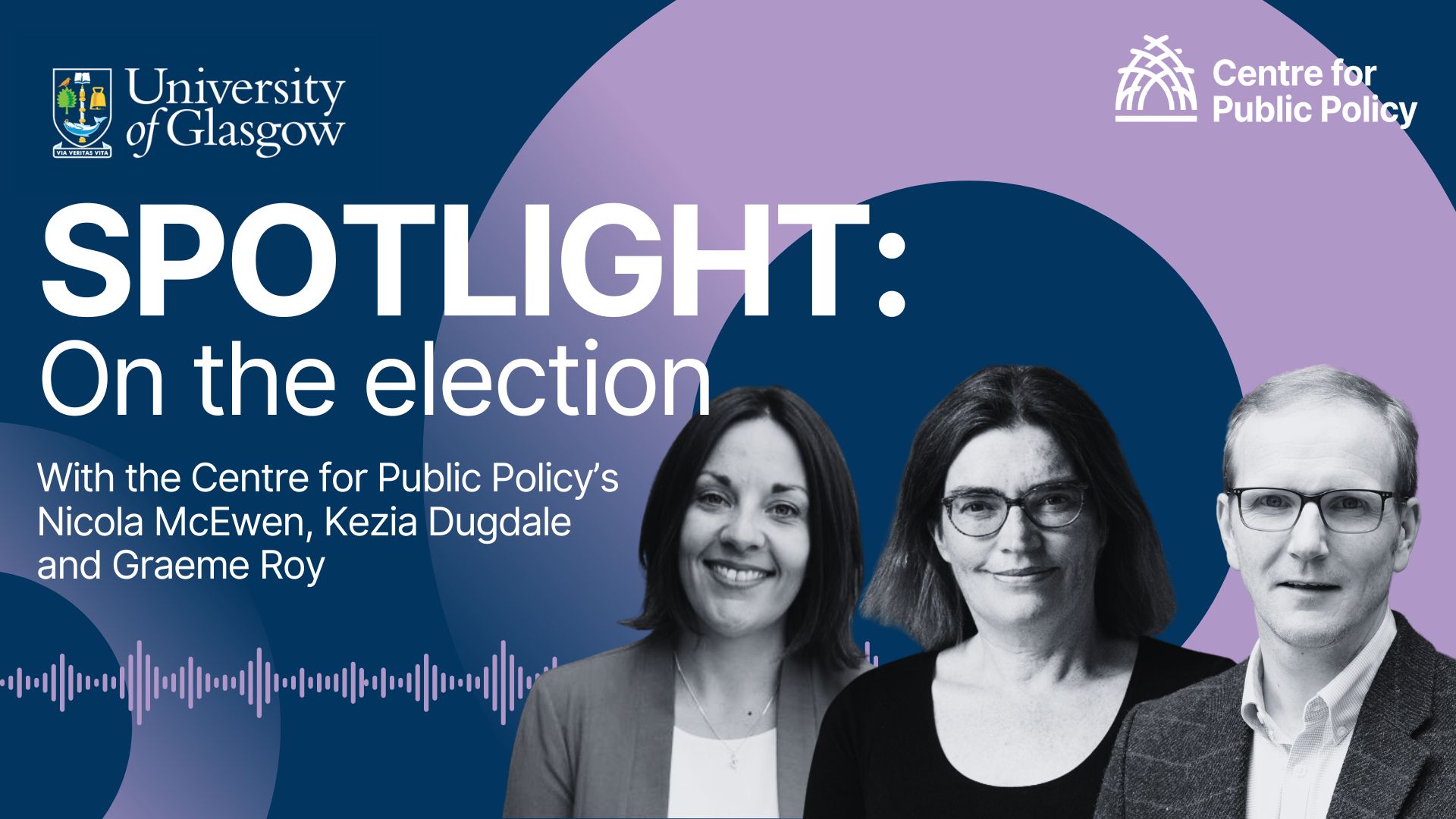Forced migration and the backlog of asylum decisions
Published: 19 June 2024
Policy Insights: Dr Dan Fisher writes about the current backlog of asylum decisions and discusses the plans presented by the major parties to tackle it.

This blog is part of the Centre for Public Policy UK General Election Policy Insights series.
Author: Dr Dan Fisher, Research Associate at the Centre for Public Policy
A backlog diminished
A perennial issue of the asylum system is the size of the backlog of asylum cases yet to be decided on by the Home Office caseworkers. At the time of the 2001 General Election, for example, the backlog stood at 42,000 cases. While it was subsequently reduced, this ‘legacy backlog’ again rose at an alarming rate from 2018 onwards – reaching just over 100,000 cases in 2022. Being forced to wait months, if not years, for an asylum decision has had an appalling effect on people forced to live in limbo while being unable to work. It has also created a drain on the government’s finances and created the conditions in which the use of hotels has been needed to house people seeking asylum as a result of a lack of available homes.
Since 2022, the Home Office has hired over a thousand new caseworkers and has made clearing the legacy backlog its main aim, with the result that it now stands at about 4,000 cases. At first glance this would appear to be a successful operation.
Another arisen
The reduction of the legacy backlog has come at the cost of new backlog of asylum cases that originate from the passing of both the Nationality and Borders Act 2022 (NABA) and the Illegal Migration Act 2023 (IMA). While NABA set in motion the possibilities for the government’s Rwanda scheme, IMA creates the legal conditions for any asylum claim lodged by a person who has arrived without prior authorisation after July 2023 to be deemed inadmissible in the UK.
While clearing the legacy backlog and waiting for the Rwanda scheme to become operational, therefore, the Home Office has quietly created a new backlog of cases. Combined with decade-high asylum applications, this new backlog stands once again at 100,000 cases.

General Election party commitments
Conservative plans to deal with this new asylum backlog are based on bringing into force provisions included in the Illegal Migration Act 2023. These provisions will make asylum claims lodged by those who arrive without permission as inadmissible in the UK. Combined with the Rwanda scheme, therefore, asylum applications would then be processed elsewhere. Included in this plan is the aim that people seeking to claim asylum in the UK will be deterred from doing so because of these changes.
Meanwhile, Labour have stated that they will tackle the backlog by hiring more Home Office caseworkers to process the asylum claims while also creating a “1,000 strong Returns Unit” to remove those whose asylum claims fail. While more claims might be processed, it is worth noting that there have been long-standing concerns over the quality of Home Office asylum determinations and that these concerns have grown since the current government’s decision to hire more caseworkers.
Quick and dirty
Both parties claim that they will look to extend deals such as the returns agreement the current government signed with Albania and the general designation of Albania as being a safe country. This follows a trend of seeking out large changes to asylum process to reduce asylum numbers. It is worth noting, however, that the High Court recently granted permission for an Albanian asylum seeker to challenge the Home Office’s certification of his asylum claim as being clearly unfounded. If successful, this could significantly limit the effects of the agreement with Albania.
This recent challenge points to a more general learning: there have been many previous attempts to remove appeal rights, certify countries as being safe, and creating fast-track processes. These have invariably failed or been found to be unlawful. It is clear that a holistic approach – one that considers the impacts on the courts and the quality of the asylum determination process – is needed. Yet this has not been presented by either of the UK’s major political parties, with both favouring quick solutions to long-standing problem.
Author
Dr Dan Fisher is a political geographer with an interest in borders, processes of asylum determination and refugee integration. His recent work explores the governance practices of refugee integration and the decision-making processes of forced migrants. As part of his previous role with the UNESCO Chair for Refugee Integration through the Languages and the Arts, Dan worked on an evaluation of Scotland’s ‘New Scots Refugee Integration Strategy’. His current work also includes analysing judicial determinations of asylum appeals.
Preview photo by Hal Gatewood on Unsplash
WATCH What is 'Irregular Migration'? with Dr Dan Fisher
More election insights - Spotlight: On the election
Tune in to our mini podcast series Spotlight: On the election.
We’re shining a light on the policy issues, the parties, key battlegrounds and events of the UK General Election, bringing you expert insights from the University of Glasgow and beyond.
Listen and subscribe on Spotify.

First published: 19 June 2024
Spotlight: On the Election - A Deep Dive into Immigration Policy
Listen to Dan in the latest episode of our election-focused podcast
This blog is part of the Centre for Public Policy UK General Election Policy Insights series
The series shares research, knowledge and insights on the policy issues facing the country from key voices across the University of Glasgow and beyond.


